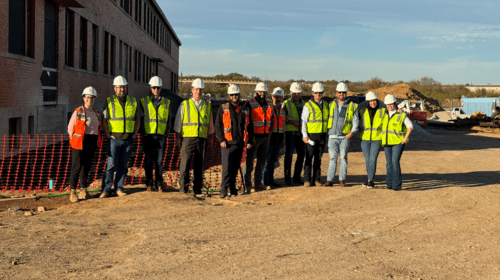I was nine years old when the Terminator series hit the big screen and, while I do not recall my age when I saw the first episode, I know I was young. I would watch the second episode later and then move through the rest of the series. What I recall, though, is the feeling of exhaustion I encountered after watching each episode. No matter how difficult the main character and team fought the opposition, they were relentless and never tired. Stepping back and looking at the oil and gas industry in the same light, I see that it resembles Sarah Conner and the good of humanity. Fossil fuel opposition is primarily led by the Biden administration and evidenced by its constant efforts to stifle its progressions forward, and it too never stops.
Although the United States became the largest LNG exporter last year, the Biden administration continued to derail progress. Seven domestic operating LNG terminals produce nearly 87 mm tonnes of LNG annually, and a handful of projects are proposed to add more capacity. President Biden blockaded the potential by halting permits for those new projects. While the impact of that additional capacity will not have an immediate impact on capacity, the industry’s job market will certainly feel the squeeze. Many expansion projects offer positions that progress into full-time positions when these facilities come online. With construction being delayed indefinitely, those filling the construction positions must seek new jobs.
The Biden administration’s latest move, targeting Alaska, could have far-reaching economic implications. The Department of the Interior’s plan to block oil and gas drilling in more than 13 million acres of public land could lead to a double dose of economic hardship for the state. Not only does Alaska heavily rely on oil and gas for tax revenue, but its constituents also find employment in the various sectors that support the industry. This is a clear example of how decisions made at the federal level can have a direct impact on local economies.
With the looming presidential election approaching, many question the motives of such decisions being made in the present. Is it to gain the support of anti-fossil fuel voters, or is it because the Biden administration feels compelled to save the planet from fossil fuel consumption? No matter the motives, an exacting force cannot stretch across society and make one-sided decisions. It takes compromise. There is no doubt the oil and gas industry needs to improve. This is evident with any industry and, as a society, we should strive to improve in all areas. This makes us and the industry better in the end. A quick abolishment enacted by the strongarm of zero compromises only hurts the growth and vision needed for a better tomorrow.
Nick Vaccaro is a freelance writer and photographer. In addition to providing technical writing services, he is an HSE consultant in the oil and gas industry with twelve years of experience. Vaccaro also contributes to SHALE Oil and Gas Business Magazine, American Oil and Gas Investor, Oil and Gas Investor, Energies Magazine and Louisiana Sportsman Magazine. He has a BA in photojournalism from Loyola University and resides in the New Orleans area. Vaccaro can be reached at 985-966-0957 or nav@vaccarogroupllc.com.
Oil and gas operations are commonly found in remote locations far from company headquarters. Now, it's possible to monitor pump operations, collate and analyze seismic data, and track employees around the world from almost anywhere. Whether employees are in the office or in the field, the internet and related applications enable a greater multidirectional flow of information – and control – than ever before.












